Member update: October 2019
Awards, promotions and more. Find out what's going on in the lives of ASBMB members. Have you recently been promoted or honored? Do you have good news to share with your fellow ASBMB members? Email it to us and don’t forget to include a photo!
Hartl wins Janssen award
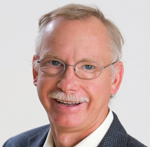 Franz-Ulrich HartlFranz-Ulrich Hartl of the Max Planck Institute of Biochemistry won the 2019 Dr. Paul Janssen Award for Biomedical Research along with Arthur Horwich of Yale School of Medicine.
Franz-Ulrich HartlFranz-Ulrich Hartl of the Max Planck Institute of Biochemistry won the 2019 Dr. Paul Janssen Award for Biomedical Research along with Arthur Horwich of Yale School of Medicine.
The pair, who were honored with the American Society for Biochemistry and Molecular Biology’s Tabor Research Award in 2013 and the Albert Lasker Basic Medical Research Award in 2011, are known around the world for their pioneering studies of the cell’s protein-folding machinery.
“Drs. Hartl and Horwich combined their brilliant insights and elegant approaches to overturn the dogma of their day about the process of protein folding,” David Julius of the University of California, San Francisco, chairman of the selection committee, said in a statement. “Their studies revolutionized our understanding of how proteins achieve their shape and revealed how defects in this process may contribute to a variety of disorders ranging from metabolic to neurodegenerative diseases.”
The late Paul Janssen had a hand in developing more than 80 medicines, four of which remain on the World Health Organization’s list of essential drugs. Johnson & Johnson established the award in his name in 2004. ASBMB members who have won the Janssen award in the past include Nobel laureate Yoshinori Ohsumi (2016) and Emmanuelle Charpentier and Jennifer Doudna (2014).
Hartl was elected to the National Academy of Sciences in 2011 and is a member of the editorial board for the Proceedings of the National Academy of Sciences.
Pew award for Zhang
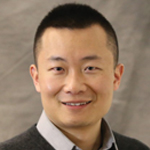 Xin Zhang
Xin Zhang
Xin Zhang, an assistant professor of chemistry and of biochemistry and molecular biology at Pennsylvania State University, has been chosen to join this year’s class of Pew Biomedical Scholars.
The program, run by the Pew Charitable Trust, provides four years of funding for exploratory research by assistant professors. The aim is to support risky but potentially high-reward research inquiries.
Zhang’s lab studies protein misfolding and aggregation during cellular stress, with special attention to intrinsically disordered proteins that contain prionlike domains. His team visualizes these proteins using tags whose fluorescence indicates aggregation. The work could help in understanding of neurodegenerative disorders driven by proteopathy, such as Huntington’s or Alzheimer’s disease.
Zhang, a chemical biologist, earned a Ph.D. in chemistry at the California Institute of Technology and pursued postdoctoral research at Scripps Research. He has been on the faculty at Penn State since 2015.
Sumter named dean at Winthrop
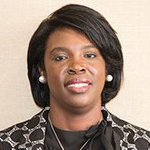 Takita Felder Sumter
Takita Felder Sumter
Takita Felder Sumter, a professor of chemistry at Winthrop University in South Carolina, assumed the role of dean of the College of Arts and Sciences in July. Sumter has taught at the university since 2004; in 2017 she served as interim dean.
Sumter studies the chromatin binding high-mobility group A1, or HmgA1, proteins, which are overexpressed in cancer.
Sumter serves on the ASBMB’s governing council and the National Science Foundation’s advisory committee for biology. Deeply committed to education and mentorship, she co-founded the ASBMB’s annual Interactive Mentoring Activities for Grantsmanship Enhancement, or IMAGE, grant writing workshop. She also contributes to biochemistry textbooks and has published on best practices in teaching chemistry and biochemistry.
“Takita is well respected by all who know and work with her,” Winthrop University President Dan Mahony said. “She clearly made a positive impression on her colleagues during her time as interim dean.”
Diamandis wins Canadian service award
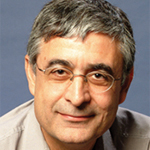 Eleftherios P. Diamandis
Eleftherios P. Diamandis
Eleftherios P. Diamandis, head of clinical biochemistry at the Mount Sinai Hospital and University Health Network, has won the 2019 Canadian Academy of Clinical Biochemistry Award for Outstanding Service to the Profession of Clinical Biochemistry.
The award was established in 1993 to recognize those who have made “unique contributions in laboratory medicine and had a worldwide impact in clinical medicine.” Diamandis, who also leads the clinical biochemistry division at the University of Toronto, conducts translational research on cancer biomarkers using proteomics and genomics.
Diamandis will be recognized in a citation read at the annual conference of the CACB. He also will receive a certificate and a $1,500 prize sponsored by Siemens Canada, the principal Canadian subsidiary of the multinational company Siemens.
Blanco concludes media fellowship
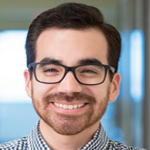 Daniel Bastardo Blanco
Daniel Bastardo Blanco
Daniel Bastardo Blanco spent the summer as an intern at Discover Magazine through the American Association for the Advancement of Sciences’ mass media fellowship.
The program allows undergraduate and graduate students in science, engineering, technology and math fields to spend 10 weeks learning the ropes of scientific communication in newsrooms around the country.
Blanco is a Ph.D. candidate in immunology at St. Jude’s Children’s Research Hospital/University of Tennessee Health Science Center. He was a 2019 ASBMB Hill Day advocacy trainee.
While interning at Discover, Blanco wrote about probiotics, 3D printing spacecraft, climate change, the microbiome and other topics.
Chewing gum project honored
 Pictured with their winning poster are, left to right, Huntingdon Area Middle School students Shaelyn McGinnis, McKensie Klauss and Gracie HobbsCOURTESY OF DAN DRIESDan Dries of Juniata College presented an ASBMB Science Fair Award on May 10 to middle school students Gracie Hobbs, McKensie Klauss and Shaelyn McGinnis for their project Rinku Chewy, an eco-friendly solution to disposing of used chewing gum. When tasked with developing a project for their local science, technology, engineering and mathematics fair, the team wanted to combine an ecologically responsible product with outreach to their community. Rinku Chewy is a homemade organic chewing gum that, when returned to the company, is repurposed as filler for shoe soles. These shoes, produced using the revenue of their company, are distributed to the less fortunate. The three students of Huntingdon Area Middle School in Huntingdon, Pennsylvania, wanted to appeal to their peers who, they noticed, often chew gum. The team also wrote and produced an anime ad to promote the product. “It’s so cool to win something this big!” Shaelyn said of the award.
Pictured with their winning poster are, left to right, Huntingdon Area Middle School students Shaelyn McGinnis, McKensie Klauss and Gracie HobbsCOURTESY OF DAN DRIESDan Dries of Juniata College presented an ASBMB Science Fair Award on May 10 to middle school students Gracie Hobbs, McKensie Klauss and Shaelyn McGinnis for their project Rinku Chewy, an eco-friendly solution to disposing of used chewing gum. When tasked with developing a project for their local science, technology, engineering and mathematics fair, the team wanted to combine an ecologically responsible product with outreach to their community. Rinku Chewy is a homemade organic chewing gum that, when returned to the company, is repurposed as filler for shoe soles. These shoes, produced using the revenue of their company, are distributed to the less fortunate. The three students of Huntingdon Area Middle School in Huntingdon, Pennsylvania, wanted to appeal to their peers who, they noticed, often chew gum. The team also wrote and produced an anime ad to promote the product. “It’s so cool to win something this big!” Shaelyn said of the award.
In memoriam: Henry Koffler
Henry Koffler, president emeritus of the University of Arizona, died March 10, 2018 at age 95.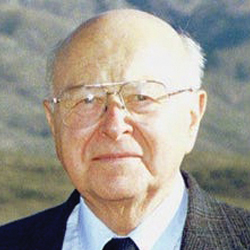
Koffler fled Nazi-occupied Austria in 1940, arriving in Arizona at age 17. He attended the University of Arizona, where he met fellow student Phyllis Piersen; they were married for 71 years.
Trained in biochemistry at the University of Wisconsin, Koffler joined the faculty at Purdue University, eventually becoming the head of the university’s division of biological sciences. His award-winning microbiology research focused on flagella, structures important for bacterial motility.
In one line of inquiry, Koffler and colleagues showed that flagellar enzymes from thermophilic bacteria are more heat-stable than flagella from their less heat-resistant relatives.
Beginning in 1975, Koffler took on increasingly senior administrative roles at the University of Minnesota and the University of Massachusetts Amherst. He then served a nine-year term as president of the University of Arizona, his alma mater. Colleagues say his leadership was key to expanding the faculty, enabling technology transfer and establishing the University of Arizona’s reputation as a research university.
Among Koffler’s many honors were recognition as one of Purdue University’s Great Teachers, founding governorship in the American Academy of Microbiology, fellowship in the American Association for the Advancement of Sciences and knighthood in France’s Ordre de Palmes Académiques.
(This article was updated January 19, 2021 to correct the date of death.)
In memoriam: John Tymoczko
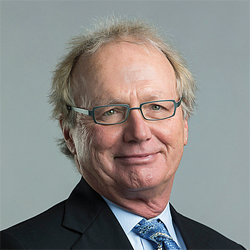 John Tymoczko, an emeritus professor at Carleton College in Northfield, Minnesota, died May 26 of a heart attack.
John Tymoczko, an emeritus professor at Carleton College in Northfield, Minnesota, died May 26 of a heart attack.
Tymoczko taught at Carleton for 39 years starting in 1976 and is remembered warmly by generations of students. Laura Pogemiller Caron, a former student, wrote, “I think only John could make that intro material so engaging — and do it over and over. He really got a kick out of watching the lightbulb click every time a new class understood.”
His teaching extended beyond the Carleton campus; along with Jeremy Berg and Gregory Gatto, Tymoczko co-authored five editions of the classic textbook “Biochemistry” by Lubert Stryer used by college students across the country. Berg called Tymoczko “a thoughtful scholar and a very hard worker, always ready with a bad pun to lighten a discussion.”
Tymoczko is survived by his wife, Alison Unger, their son and daughter, and three grandchildren.
In memoriam: Leonard A. Sauer
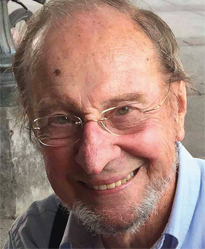 Leonard A. Sauer, who spent most of his career as a research physician at the Mary Imogene Bassett Hospital in Cooperstown, New York, died April 15. He was 89.
Leonard A. Sauer, who spent most of his career as a research physician at the Mary Imogene Bassett Hospital in Cooperstown, New York, died April 15. He was 89.
Sauer attended high school in Schenectady, New York, but according to a published obituary, he is said to have skipped school often to play pool. He enlisted in the Army in 1948 and for almost four years was a member of the Signal Corps, which to this day manages communications and information systems.
When his military service ended, Sauer attended Cornell University and then earned his medical degree at the University of Rochester and his Ph.D. from the Rockefeller Institute in New York. He spent several years doing research at Yale University before joining Bassett in 1975.
During his career at Bassett, a teaching hospital now affiliated with Columbia University, Sauer published upward of 70 papers on cancer metabolism pathways and other topics.
He retired in 1996 and spent his later years fly fishing and woodworking at his home on the Bitterroot River in Montana, where he lived with his wife, Mimi, who survives him.
Retrospectives
We invite you to honor a recently deceased ASBMB member with a personal retrospective article in ASBMB Today. For details, email ASBMB Today.
Enjoy reading ASBMB Today?
Become a member to receive the print edition four times a year and the digital edition monthly.
Learn moreGet the latest from ASBMB Today
Enter your email address, and we’ll send you a weekly email with recent articles, interviews and more.
Latest in People
People highlights or most popular articles

Embrace your neurodivergence and flourish in college
This guide offers practical advice on setting yourself up for success — learn how to leverage campus resources, work with professors and embrace your strengths.

Survival tools for a neurodivergent brain in academia
Working in academia is hard, and being neurodivergent makes it harder. Here are a few tools that may help, from a Ph.D. student with ADHD.

Quieting the static: Building inclusive STEM classrooms
Christin Monroe, an assistant professor of chemistry at Landmark College, offers practical tips to help educators make their classrooms more accessible to neurodivergent scientists.

Hidden strengths of an autistic scientist
Navigating the world of scientific research as an autistic scientist comes with unique challenges —microaggressions, communication hurdles and the constant pressure to conform to social norms, postbaccalaureate student Taylor Stolberg writes.

Richard Silverman to speak at ASBMB 2025
Richard Silverman and Melissa Moore are the featured speakers at the ASBMB annual meeting to be held April 12-15 in Chicago.

Women’s History Month: Educating and inspiring generations
Through early classroom experiences, undergraduate education and advanced research training, women leaders are shaping a more inclusive and supportive scientific community.
